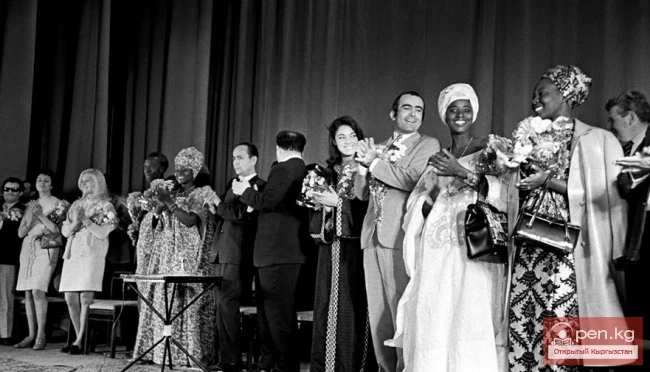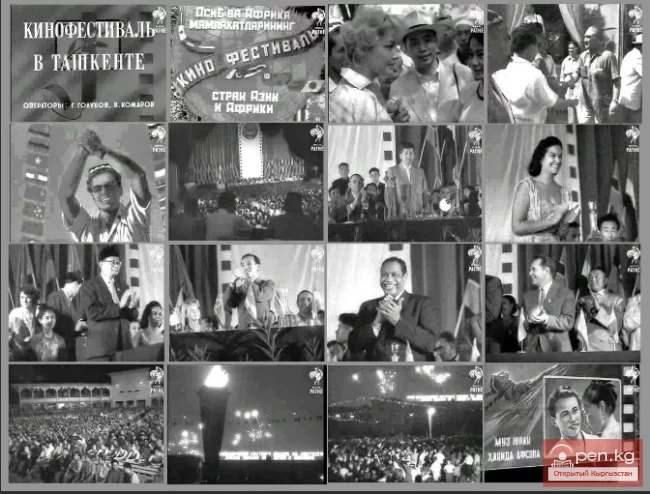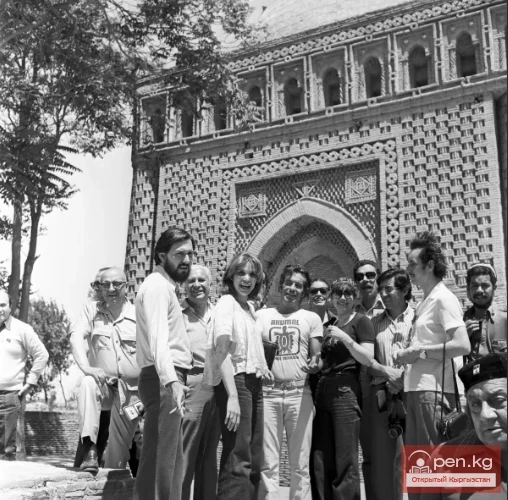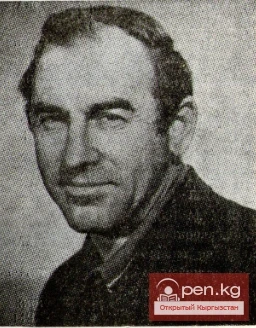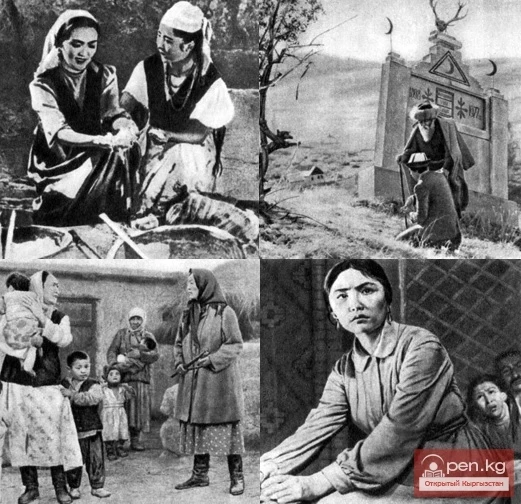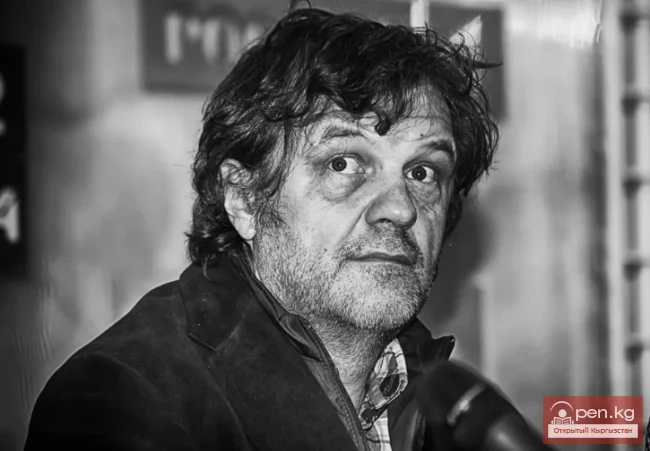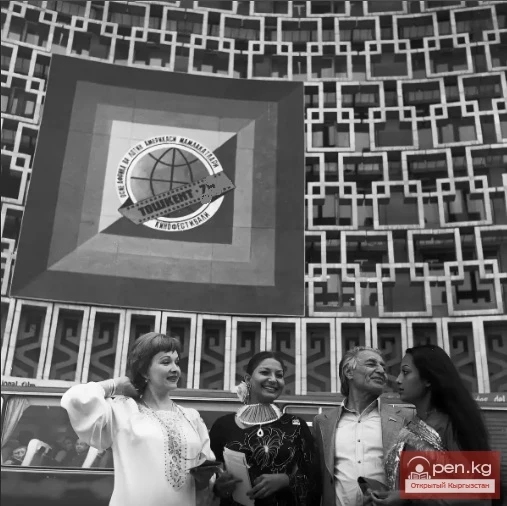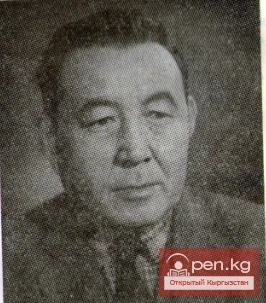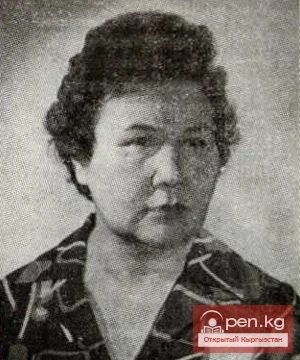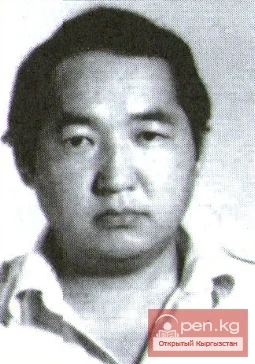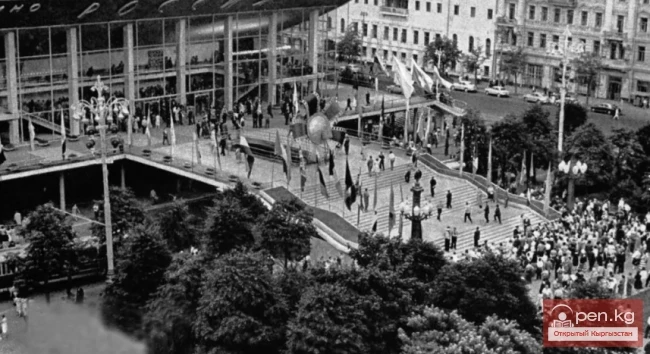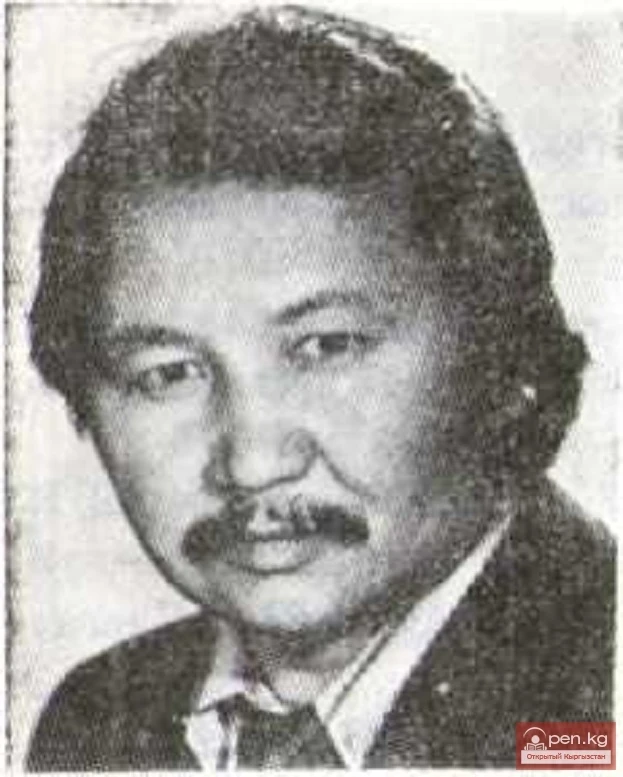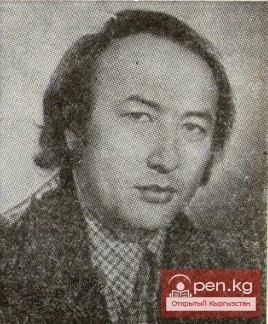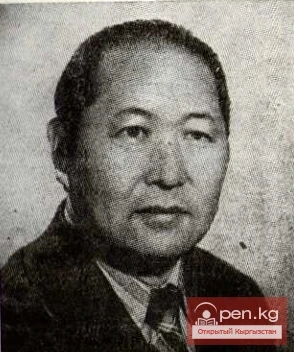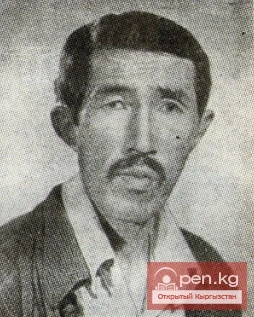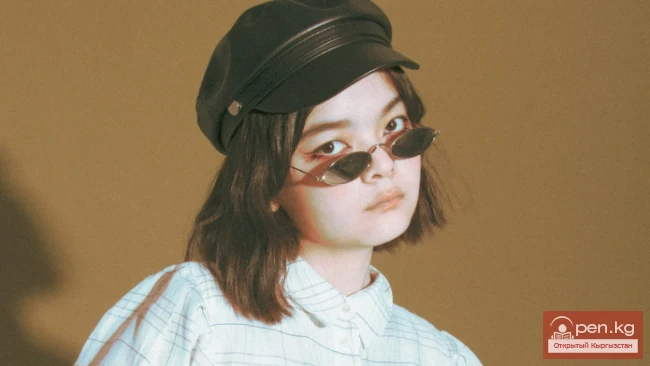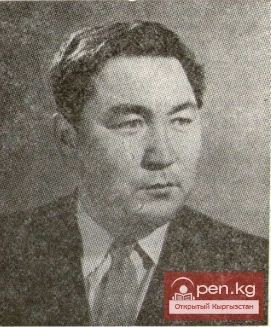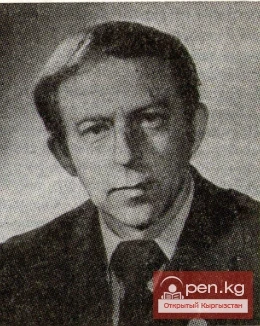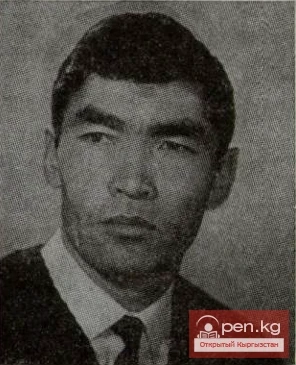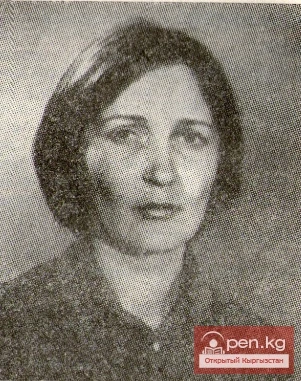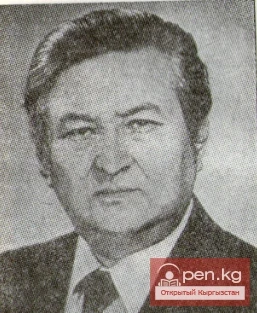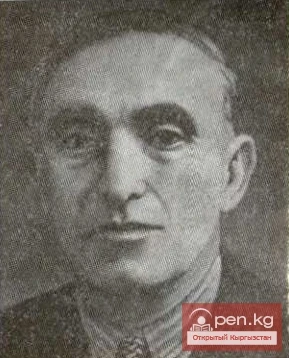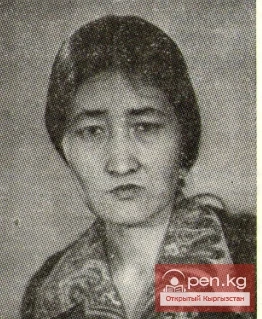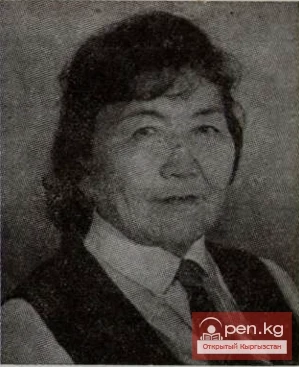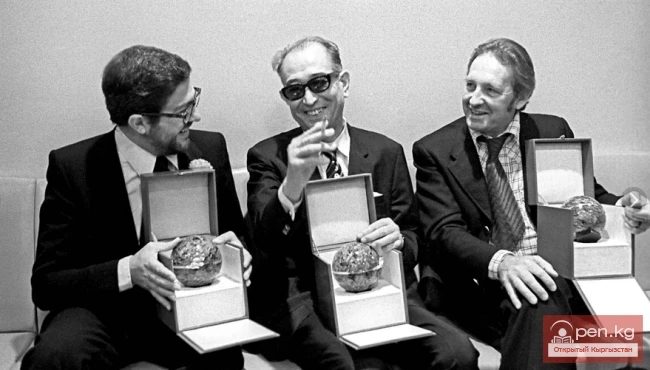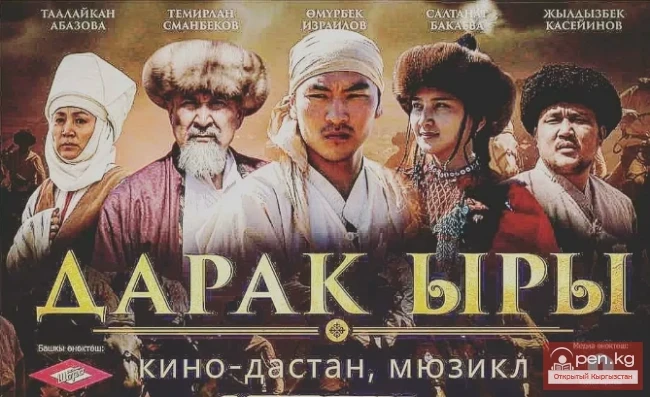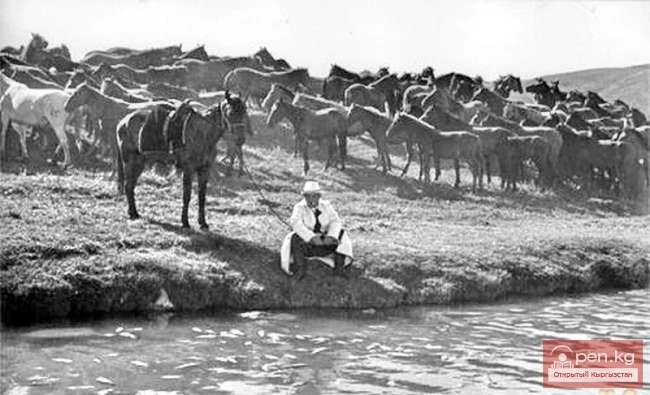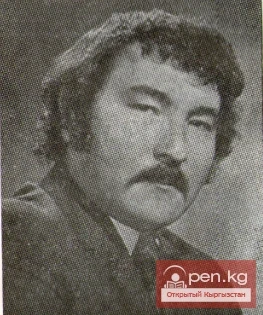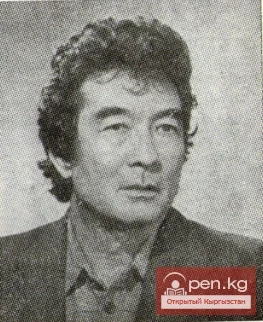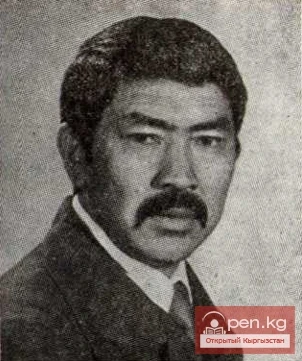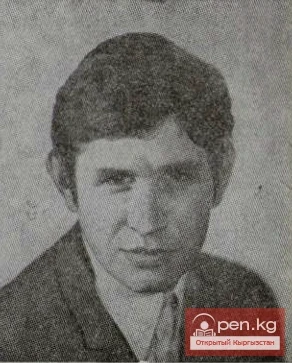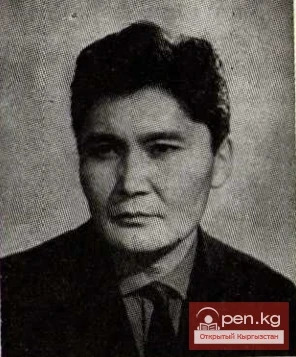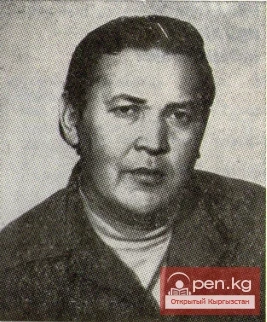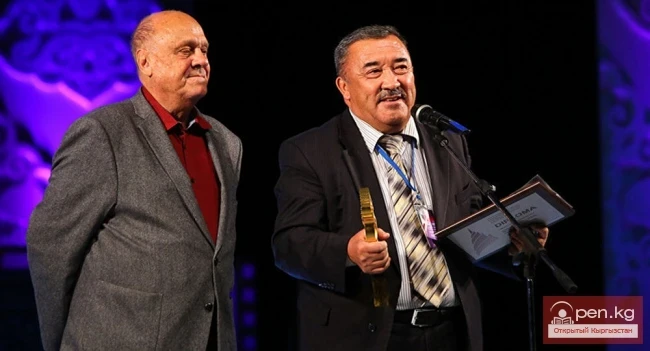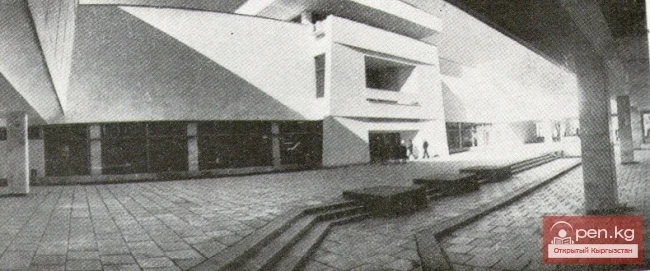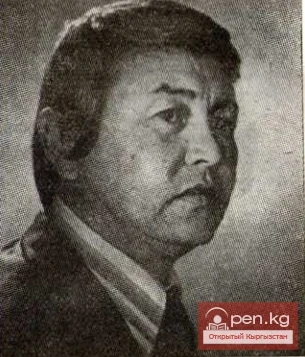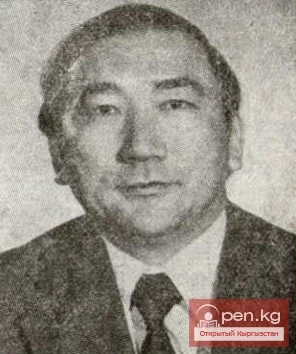Reviews of Kyrgyz Cinema
The official screening of documentary films at the Tashkent International Festival opened with "The Bridges of Duyshen" at the House of Knowledge. Kyrgyz cinematography was more fully represented a few days later when "Post" was shown there, and in the evening, at the Palace of Arts, the feature film from Frunze "Waterfall" (script by L. Dyadyuchenko, director Y. Boretzky, cinematographers A. Kim, N. Borbiyev, starring Ch. Duvanaev, I. Andrinya, M. Bulgakova, A. Kyrgyzbaev, V. Zhdanov, A. Ashimov, Dzh. Seydakhmatova).
...After the screening of the documentaries at the House of Knowledge, I approached one of the viewers and asked him to share his impressions of "Post." It turned out: Ibaldо Duran is not a filmmaker and not a festival guest. He lives in the Oriente province in Cuba and is studying at a textile institute here in Tashkent, finishing his third year.
- Before, — said Ibaldо, — I never thought about the work of a postman. In Cuba and here, in our dormitory, I somehow never encountered those who deliver newspapers and letters. But after watching this film, I saw what hard work it is, how difficult it is in the mountains, in the snow... I see this land: Kyrgyzstan, — says the young man syllable by syllable, carefully pronouncing each word — for the first time. And I am very glad that I got to know it and its people, so brave and kind, like the old Kasymaly...
Films from Yemen "Republic of Peace," from Colombia — "Ayacucho," from Soviet Kyrgyzstan — "Post," and the Cuban film — "New School" were shown in one screening. And when the authors were introduced to the audience, when the Cuban Rohilio Paris, the chief director of the "ICAIC" film institute, the Kyrgyz Bekesh Abdildaev, and the Colombian Francisco Norden sat on stage with flowers in their hands, and when the green valleys of Yemen and the snowy expanses of Susamyr appeared before us without interruption, colorful clothes of Colombian peasants and spacious, sunlit classrooms of new Cuban basic secondary schools (similar to our boarding schools), and the young generation — citizens of the island of Freedom — would evaluate the new school uniform, deciding together what color the boys' trousers should be and how long the girls' skirts should be, and Fidel would come to the kids for this seemingly trivial conversation, and would seriously listen to each one while participating in the discussion — at that moment, it seemed that all the wars of humanity, all the misfortunes of people were already behind, and the long-awaited peace had finally come to our planet...
I had the opportunity to discuss Kyrgyz art, Kyrgyz cinema — the prospects for its development with many filmmakers — participants of the Tashkent festival.
Dragoslav Adamovich — head of the culture department of the newspaper "Politika" in Belgrade (Yugoslavia):
— The cinematography of Kyrgyzstan is an extremely interesting phenomenon. "The First Teacher," "Heat" — these films opened your republic to us...
We are pleased with the searches of Kyrgyz filmmakers in the short film genre. "Castles in the Sand," "Post," "The Bridges of Duyshen," which I saw at International festivals in Krakow and Leipzig, are made talentfully and in a new way. In this direction, in terms of searching for new forms and means of short cinema, your filmmakers should continue to work. For success, in my opinion, they have every reason.
Nina Hibbin. A name familiar from the press. A well-known English journalist, progressive film critic, reviewer for the "Morning Star" — the organ of the Communist Party of Great Britain, — Nina Hibbin often speaks on issues of contemporary cinema in "Soviet Culture" and "Literary Newspaper," in "Soviet Screen," "Art of Cinema."
Mrs. Hibbin kindly agreed to answer questions. Upon learning that I represent a cultural weekly from Kyrgyzstan, she asked if I had one of the copies to get acquainted with this new publication. And she promised to send to England, to Bradford, where Mrs. Hibbin lives, an issue of "Kyrgyzstan Madiyaty" with a story about the festival.
— A few days ago, — said Nina Hibbin, — I watched the new film by Kyrgyz director Okeeva "Fierce." I am still under the influence of this film; it made a huge impression. It is made by a master, visually interesting, and it captivates the viewer. The life story depicted in the film is both an adventurous tale that keeps one in suspense and a philosophical reflection of a contemporary artist on what a person needs to be human.
I have long followed Okeeva's works; I remember his previous films "The Sky of Our Childhood" and "Bow to the Fire."
"Fierce" is his serious success. I am familiar with another director from Kyrgyzstan — Shamshiev. A few years ago, he came to England, was a guest of our filmmakers, showed his films, including "The Shot at the Karash Pass." I have seen many Kyrgyz films both at home and in the Soviet Union; I know your short films. I believe that the operator Vidugiris works very interestingly. "Castles in the Sand" is one of the best films of recent decades.
Kazuo Yamada — a well-known Japanese film critic. He participated in two previous festivals in Tashkent, many International film festivals in Moscow, and took part in symposiums on the development of Afro-Asian cinema. In 1972, after the end of the II Tashkent festival, Kazuo Yamada, among the guests of the republican Union of Cinema, was in Frunze, visited "Kyrgyzfilm," and watched films together with their authors. We are talking without a translator: Mr. Yamada speaks Russian:
— I was on the jury of the XV International Documentary Film Festival in Leipzig and remember how warmly the audience and filmmakers from different countries received "Post" by director Abdildaev. This sincere story about a postman is characteristic of the overall direction of Kyrgyz cinema, not just the documentary. Almost 10 years ago, when I first saw "Manaschi," "Chaban," "Castles in the Sand," I thought that Kyrgyz filmmakers had managed to solve a difficult and interesting problem: to create on screen a truly national character, original, interesting, and most importantly — realistic. The truth of character, the truth of life is inseparable in my view from Kyrgyz cinema. This is precisely what makes your best films strong: "Manaschi," "Chaban," "Castles in the Sand," "The Sky of Our Childhood," "The Shot at the Karash Pass," "Scarlet Poppies of Issyk-Kul," "Bow to the Fire," "Naryn Diary," "Post," "The Bridges of Duyshen"...
Kyrgyz filmmakers in the spotlight of the Tashkent festival. Television and cinematography of Kyrgyzstan in the 70s—early 80s. Part-9
